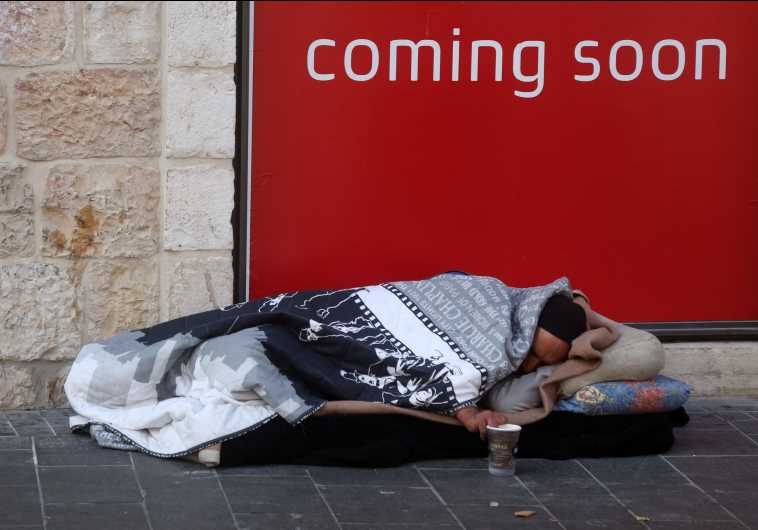Israel neglecting social welfare investment; child poverty at 25%
Welfare minister Haim Katz says people must go back to work. Unemployment at record low of 4.6%.
 Homeless person on Jaffa Street in Jerusalem.(photo credit: MARC ISRAEL SELLEM/THE JERUSALEM POST)Updated:
Homeless person on Jaffa Street in Jerusalem.(photo credit: MARC ISRAEL SELLEM/THE JERUSALEM POST)Updated: